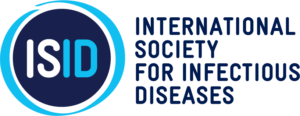The ASEAN Dengue Day is observed on June 15 every year and represents a regional advocacy initiative aimed at raising awareness against dengue (1).
In June 2021, the International Society for Neglected Tropical Diseases (ISNTD) and Asian Dengue Voice and Action (ADVA) Group jointly organized the ISNTD-ADVA World Dengue Day Forum-Cross Sector Synergies and called on the United Nations and WHO to establish a World Dengue Day. The forum proposed that dengue must be acknowledged as a collective threat and highlighted the urgent need for a strong collaborative coalition between health, environment, and education ministries as well as private sectors and the community to encourage an effective and integrated dengue control response (2).
The establishment of a World Dengue Day aims to improve worldwide dengue awareness, share best practices and resources and strengthen dengue preparedness, prevention and control (2, 3).
Dengue is the most prevalent arthropod-borne viral disease in humans and is caused by any of the four dengue virus (DENV) serotypes 1-4. DENV is transmitted by Aedes aegypti and Aedes albopictus mosquitoes that circulate in tropical and subtropical regions of Africa, Southeast Asia, the Pacific Ocean, the Western Mediterranean and the Americas. Dengue is endemic in over 128 countries with almost half the world’s population living in areas at risk for dengue transmission. It is estimated that 390 million human DENV infections occur worldwide annually, of which 96 million manifest clinically with varying levels of severity (4). Global dengue infections have been steadily increasing in the last three decades and the burden of dengue infections is expected to increase further in the next years due to increased vector density and competence, rapid urbanization, population expansion, international travels, improper waste disposal and virus evolution (5).
Dengue infection in humans presents a broad spectrum of disease, from an asymptomatic infection or an acute self-limited febrile illness, usually characterized by skin rash and joint and muscle pain, to a more severe form of disease in which the patient may develop hypovolemic shock due to increased vascular permeability and multiple organ involvement. The pathogenesis of dengue has been attributed to various factors over the years, such as sequential infections by different DENV serotypes, genetic and antigenic variations among viral strains and host genetic variations (6).
To date, two dengue vaccines have been licensed in several countries with some limitations. One of them, developed by Sanofi-Pasteur (Dengvaxia®), has been approved in individuals aged 9-45 years living in endemic regions. The WHO recommends that the vaccine be administered only to seropositive individuals because it has limited efficacy in individuals not previously exposed to DENV and may increase disease severity in dengue-naïve children 2-5 years of age (7). On the other hand, the vaccine developed by Takeda (Qdenga®) shows high efficacy against virologically confirmed dengue and severe dengue in clinical studies conducted in individuals aged 4 to 16 years living in endemic areas, showing lower efficacy in seronegative than in seropositive individuals and being variable according to serotype. Furthermore, only serological data are available for individuals 16-60 years of age and there are no data for individuals >60 years of age (8).
On the other hand, novel vector control techniques such as Wolbachia-infected male mosquitoes, the release of sterile mosquitoes, and use of spatial repellents have proven to reduce and eliminate wild mosquito populations and may decrease the impact of dengue disease (5, 9).
Antiviral candidates against DENV present a diverse range of action, including as targets both viral proteins (structural or non-structural) and cellular proteins (cellular receptors or proteins involved in post-infection stages such as replication, maturation and viral assembly). Although several promising compounds are under study, there are no clinically approved antiviral agents for the treatment of DENV infections (10). Therapy is based on supportive care, such as fluid replacement and the use of analgesics to relieve pain and fever.
The WHO 2021–2030 global target for dengue control is to reduce the dengue case fatality rate to 0% by 2030. To achieve this, the World Dengue Day calls for continuous research for innovation in diagnosis, treatment, vaccine development and vector control as well as continued strengthening of healthcare infrastructure and governmental and community engagement in the fight against dengue.
Written by ISID Emerging Leader, Laura Talarico

